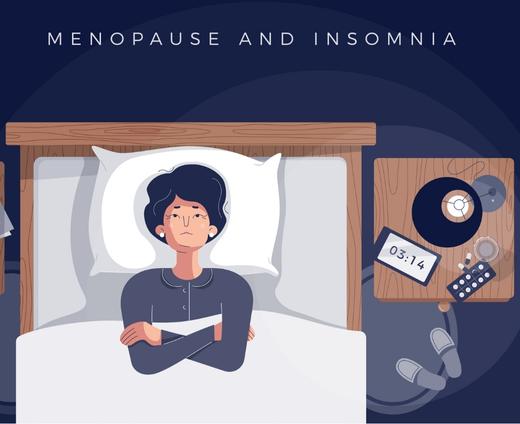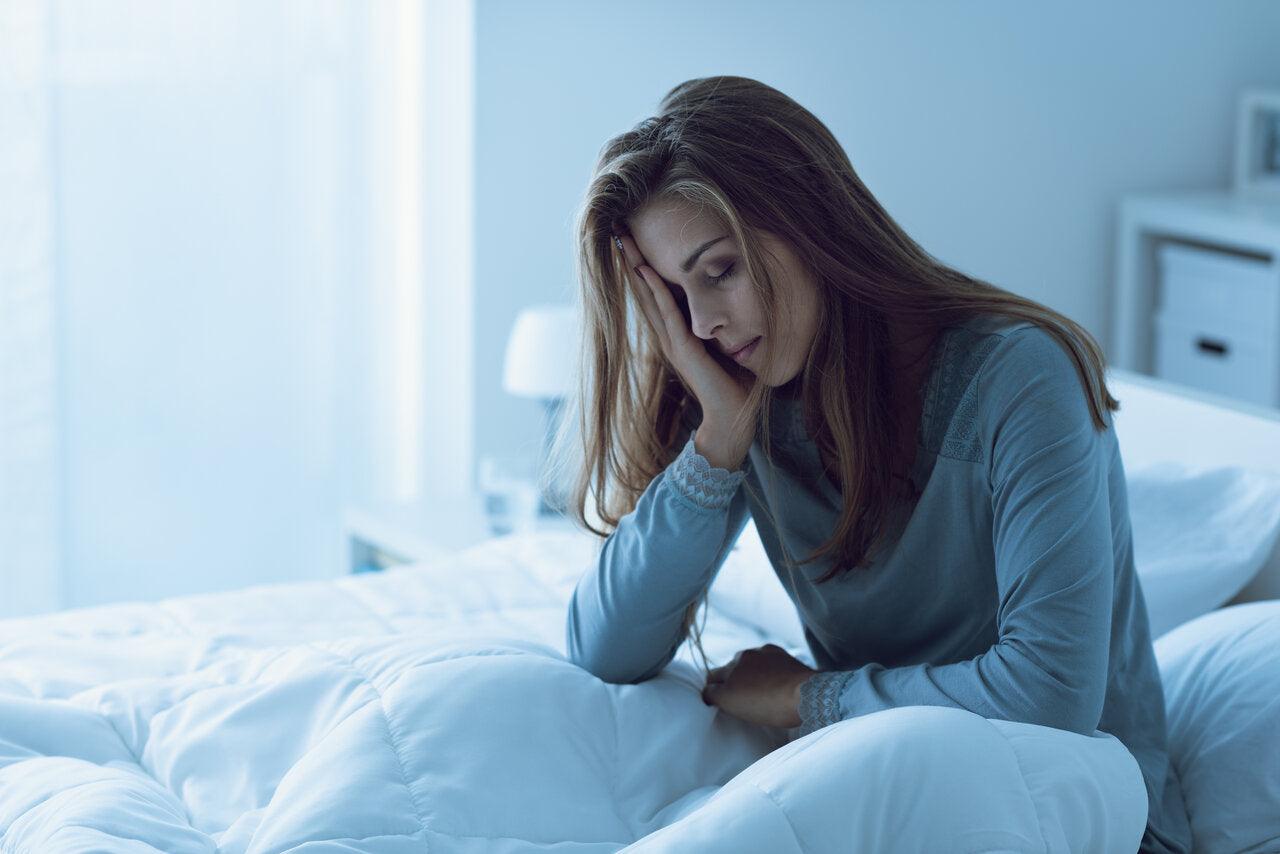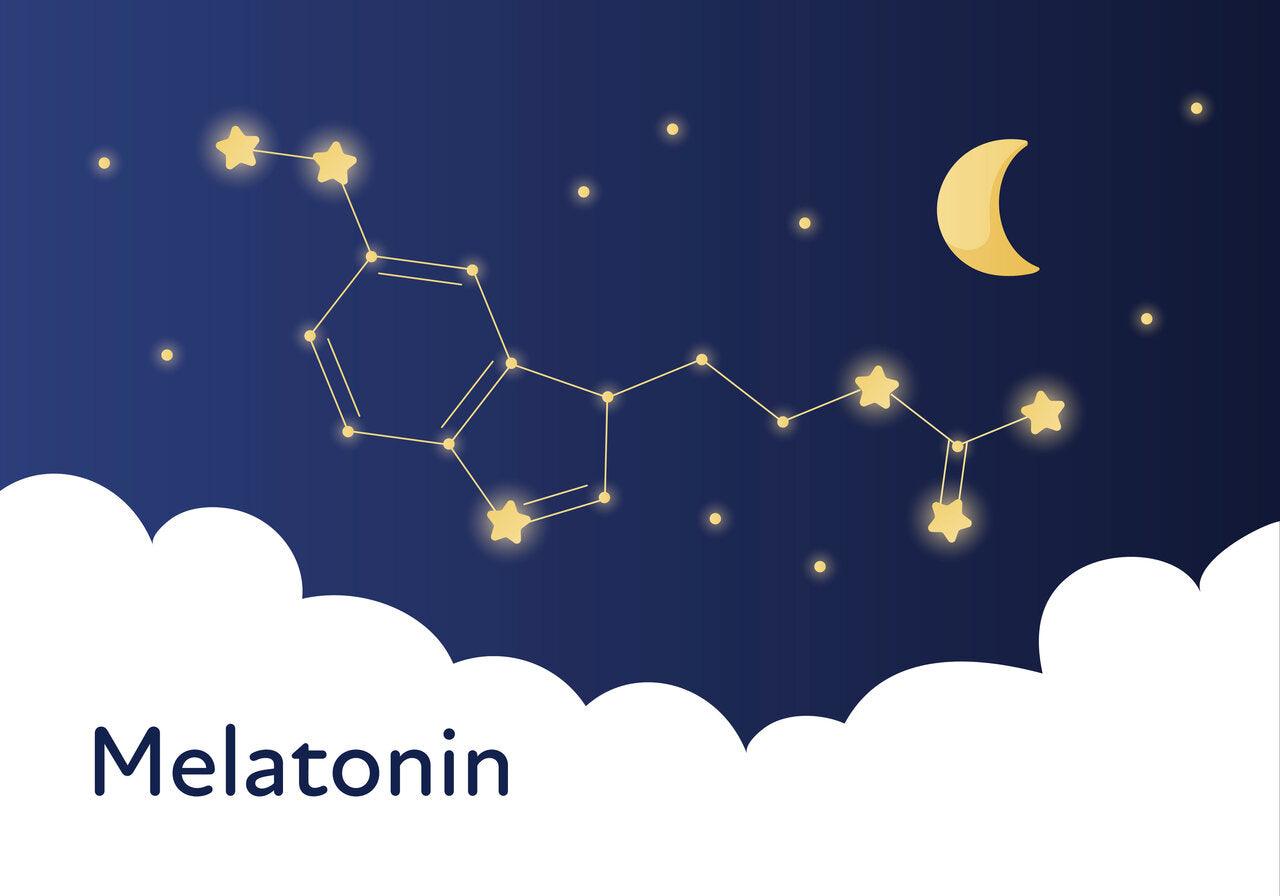The Sleep Foundation's found that up to 60% of women experience sleep problems during menopause! So, what's going on? Why does menopause affect your sleep? And what can you do about it? Let's take a closer look.
The Relationship Between Sleep and Menopause
The physical effects of estrogen and progesterone levels decreasing in your body often extend to your sleep as well. Here are some of the most common reasons women suffer from poor sleep during menopause:
- Changes in hormone levels can disrupt the body’s natural sleep-wake cycle.
- Hot flashes and night sweats can make it difficult to stay cool and comfortable at night.
- Anxiety and stress are often increased during menopause, which can lead to difficulty falling asleep or staying asleep.
- Snoring and sleep apnea become more widespread and severe, lowering sleep quality.

1. How To Get Your Sleep-Wake Cycle Back on Track
Your sleep-wake cycle is one of the most important factors in determining how well you sleep. It tells your body when it’s time to sleep and when it’s time to wake up but when this cycle is disrupted, it can lead to insomnia and other sleep problems! To learn more on this, head to your blog on What Is The Circadian Rhythm? (And How It Impacts Your Sleep).
How can you prevent this? First, try to stick to a regular sleep schedule as much as possible. This means going to bed and waking up at the same time each day, even on weekends.
Also, and this is important, make sure your bedroom is dark, quiet, and cool - all things that will help promote a good night's sleep. Even the tiniest bit of light from outside can make it difficult to fall asleep.

2. The Trick to Reducing Hot Flushes.
Make sure your bedroom is at a comfortable, low temperature. Wear breathable cotton pyjamas or a nightgown and use cotton sheets instead of synthetic fabrics and consider taking a cold shower before going to bed.
Avoid huge meals and spicy and fatty foods (anything that's fried or processed) because they can trigger hot flashes. Nicotine, caffeine, and alcohol, in particular, should be avoided throughout the late afternoon and early evening hours as these can make it hard to fall asleep and reduce the quality of your sleep.

3. Simple Hacks To Manage Anxiety During Menopause.
Let's face it, menopause can be a stressful time for many women. Hot flashes, night sweats, weight gain, and mood swings can all take their toll. But there are things you can do to reduce stress during this time of transition.
Stay active and get regular exercise. Exercise is a great way to reduce stress and improve your overall health. Even moderate exercise like walking or gardening can make a difference because it boosts your mood and keeps your energy levels up.
If your busy mind is at its worst before bed, drinking a soothing and chocolately cup of The Night Drink can take the edge off. It contains L-Theanine, which works by increasing levels of GABA, a neurotransmitter that helps to regulate mood and promote relaxation.
The Night Drink also contains 5-HTP which reduces anxiety because it increases levels of serotonin, another neurotransmitter that is involved in mood regulation! Plus, it's delicious and is the way to end your day on a sweet note.
4. Natural Solutions To Stop Snoring.
One of the most effective ways to reduce snoring is to sleep on your side. This helps to keep the airway open and prevents the tongue from falling back into the throat. If you're a committed back sleeper, try propping yourself up with pillows instead.
Another way to reduce snoring is to avoid alcoholic beverages before bed. Alcohol relaxes the muscles in the throat, which can make snoring worse.
For some people, snoring is simply a matter of nasal congestion. If this is the case, try using a neti pot or other nasal rinse to clear your sinuses before bed. You can also use a humidifier to keep the air in your bedroom moist, which can help reduce snoring.

Don't Let Menopause Rob You Of A Good Night's Sleep.
So, what can you do to combat the sleep difficulties that often come with menopause? Plenty. Whether it's lowering your bedroom temperature or sticking to a sleep-wake cycle, you can make the transition smoother – and get the good night’s sleep you need and deserve.
The Night Drink is an all-natural way to improve your sleep quality and help settle the anxiety that so often accompanies menopause. Infused with 5-HTP and L-Theanine to reduce stress and an additional 5 other sleep-inducing ingredients to help you get to sleep a little faster, this drink is a game-changer for your sleep.




